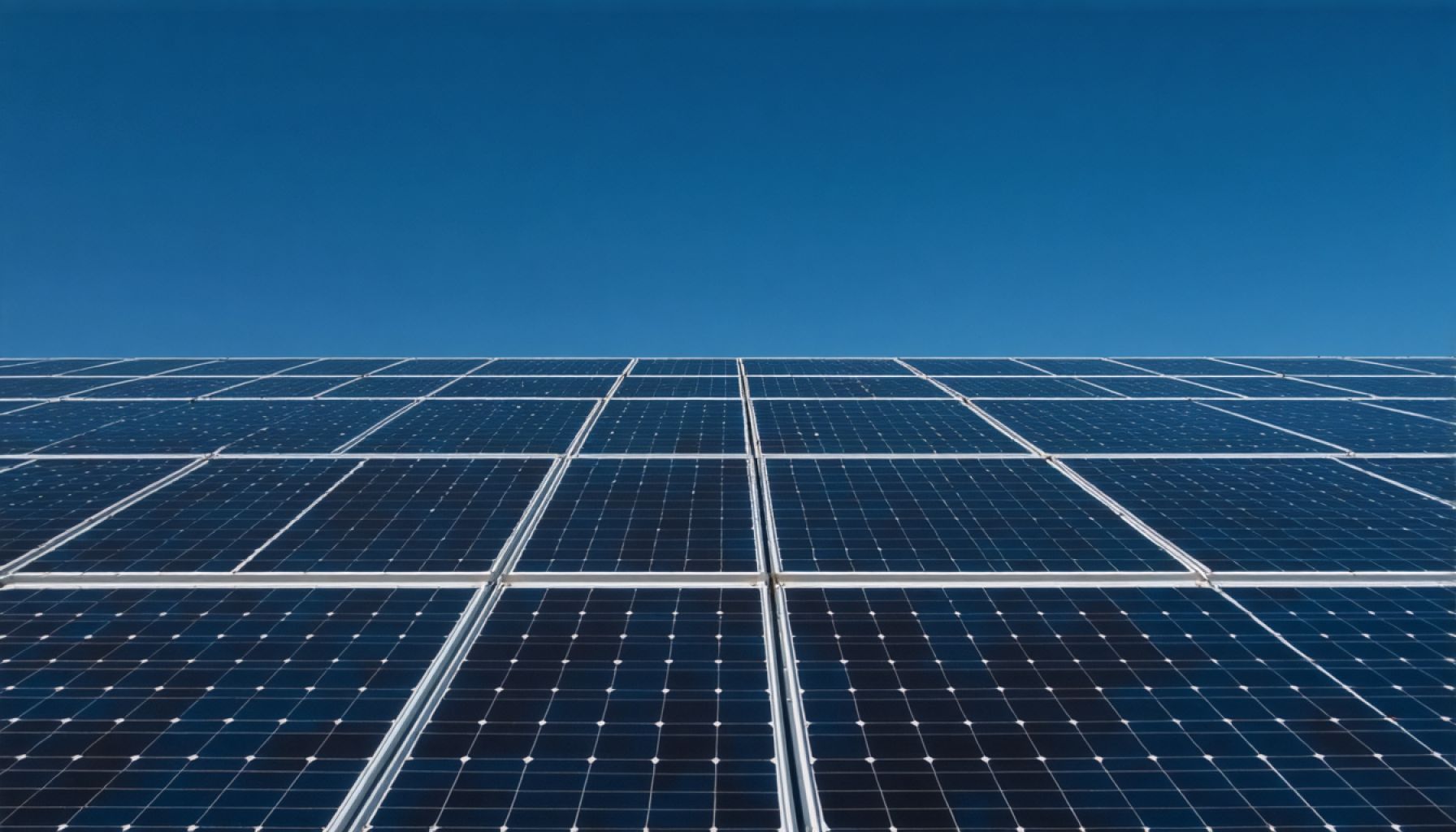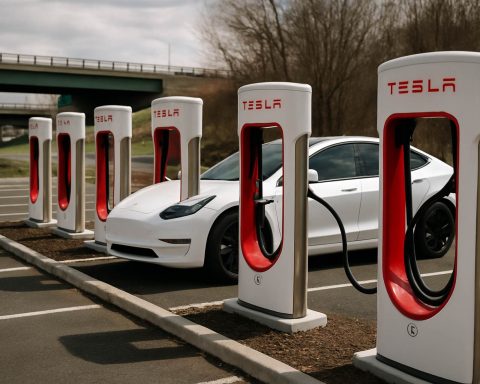- Solar panels, crucial for renewable energy, carry ethical concerns due to China’s dominant 77.8% production role and alleged forced labor in Xinjiang.
- Approximately 45% of the world’s solar-grade polysilicon is reportedly produced under coercive conditions in the Xinjiang Uyghur Autonomous Region.
- While nations like the U.S. have taken steps to limit imports from regions suspected of unethical practices, other countries face criticism for inadequate action.
- European Union and various countries must balance solar tech benefits with ethical sourcing and transparency mandates amidst lax regulations.
- A truly sustainable energy future requires rigorous supply chain oversight to ensure that ethical practices align with environmental goals.
- Policymakers and consumers are urged to demand accountability and integrity, ensuring the green revolution aligns with human rights principles.
Amidst the global race to harness renewables, an unsettling reality shadows our most promising solutions. The shiny solar panels dotting rooftops and sprawling fields across the world may carry a human price hidden beneath their gleaming exteriors. As countries strive for a greener future, they increasingly rely on China, the heavyweight solar panel supplier responsible for a staggering 77.8% of global production. However, the promise of clean energy comes with underlying complex ethical dilemmas.
Reports from international organizations sound the alarm on alleged forced labor in the Xinjiang Uyghur Autonomous Region—a key supplier of solar-grade polysilicon, essential for solar panel fabrication. Investigations claim that this region alone crafts approximately 45% of the world’s polysilicon under conditions deemed abusive and coercive.
This issue is not new, but the urgency to transition to sustainable energy appears to have overshadowed it. While some nations, like the United States, have responded by curbing imports suspected of being tainted by forced labor, others have been accused of overlooking the problem. The European Union and several other countries enjoy the fruits of solar technology advancement yet face scrutiny over transparency and ethical sourcing.
Critics highlight a lack of stringent regulations that allow economic and environmental goals to eclipse human rights considerations. For instance, New Zealand lacks any legal framework to manage these modern slavery risks, while accusations mount against the UK government for diluting protections that could prevent procurement from questionable sources. Awareness grows, yet the solar panel supply chain remains a murky space that starkly contrasts the principles of fairness and sustainability it seeks to serve.
This reality begs a crucial takeaway: achieving ecological harmony should not come at the expense of ethical responsibility. As consumers and policymakers increasingly champion the green transition, they must also call for transparency and diligence in tracing the origins of renewable components. Countries should enforce rigorous supply chain scrutiny, ensuring that the solar panels illuminating our future do not cast shadows of injustice. The green revolution demands an unwavering commitment to all-inclusive integrity—ensuring that clean energy remains truly clean, both for the planet and its people.
Unveiling the Dark Side of Solar Power: Balancing Green Energy with Ethical Sourcing
The global surge towards renewable energy harnesses a vision of a cleaner future, yet beneath the glossy surface of solar panels lies a complex web of ethical dilemmas. The dependency on China for solar panel production, which comprises an astonishing 77.8% of the worldwide output, introduces uncomfortable questions about the human cost of green technology. As we race towards environmental salvation, it’s crucial to address these underlying ethical considerations.
Key Facts and Industry Insights
1. The Polysilicon Dilemma:
– Polysilicon is an essential material for solar panel production. Approximately 45% of global polysilicon comes from the Xinjiang region of China. This area has been the focus of numerous reports alleging the use of forced labor, particularly involving Uyghur Muslims. These revelations cast a shadow over the solar industry’s supply chain, sparking global calls for more ethical sourcing practices.
2. Global Responses and Regulatory Challenges:
– The United States has implemented measures to restrict polysilicon imports connected with forced labor. In contrast, other regions, such as the European Union, have faced criticism for a perceived lack of stringent regulatory responses. New Zealand, for example, hasn’t established a legal framework to mitigate modern slavery risks, leaving room for potential exploitation in its supply chain.
3. Urgency vs. Ethical Practices:
– The urgency of transitioning to renewable energy often overshadows ethical sourcing discussions. Despite growing awareness, significant gaps in transparency persist. Critics argue for more robust regulations to ensure that economic and environmental goals do not overshadow human rights.
Real-World Use Cases
1. Ethical Audits:
– Companies can conduct comprehensive audits of their supply chains to verify ethical labor practices. Brands like Patagonia have pioneered transparent supply chains, setting a benchmark in ethical sourcing that others in industries like solar could emulate.
2. Blockchain Technology:
– Implementing blockchain could revolutionize transparency in solar panel supply chains by providing an immutable, transparent ledger of each component’s origin.
Market Forecast and Industry Trends
1. Demand for Ethical Solar Panels:
– As consumer awareness grows, demand for solar panels made with ethically sourced materials is expected to rise. Companies leading this charge could gain a competitive advantage in an increasingly conscientious market.
2. Adoption of Ethical Standards:
– Industry-wide ethical standards, similar to those in fair trade agriculture, may emerge, pressuring suppliers to adhere to labor and environmental best practices.
Controversies and Limitations
1. Lack of Enforcement:
– Even with existing policies, enforcement is lax. This issue is compounded by the complexity of global supply chains, where tracing the origin of raw materials is challenging.
2. Economic Pressures:
– Countries face economic pressures to balance growth and sustainability, which may lead to prioritizing cost-effective solutions over ethical considerations.
Actionable Recommendations
1. Policy Implementation:
– Policymakers should establish strict guidelines ensuring that all imports comply with international human rights standards. Legislation similar to the US’s Uyghur Forced Labor Prevention Act could serve as a model.
2. Consumer Advocacy:
– Consumers can play a pivotal role by demanding transparency and supporting companies that prioritize ethical sourcing.
3. Industry Collaboration:
– Stakeholders across the solar industry should collaborate to create shared ethical standards and certification systems.
Quick Tips
– Check Certifications: When purchasing solar panels, look for certifications indicating ethical production practices.
– Support Ethical Brands: Research and support brands that provide transparency about their supply chains.
– Advocate for Change: Voice the demand for policies supporting ethical labor practices in renewable energy sectors.
In conclusion, the journey to sustainable energy must encompass an unwavering commitment to ethical sourcing. As we advance in the green revolution, it is vital to ensure that the clean energy of tomorrow does not come at the expense of human rights today. For further information on renewable energy, visit iRENA and UN Sustainable Development.









